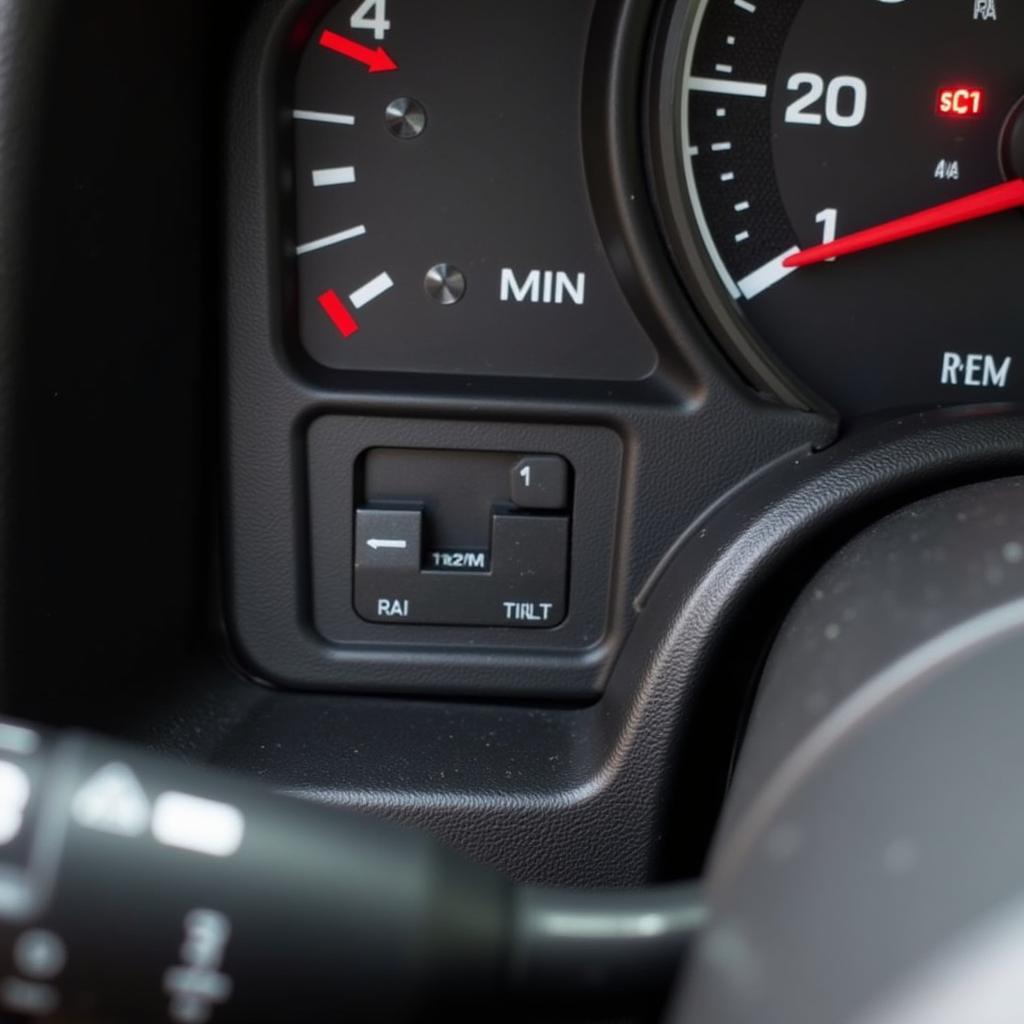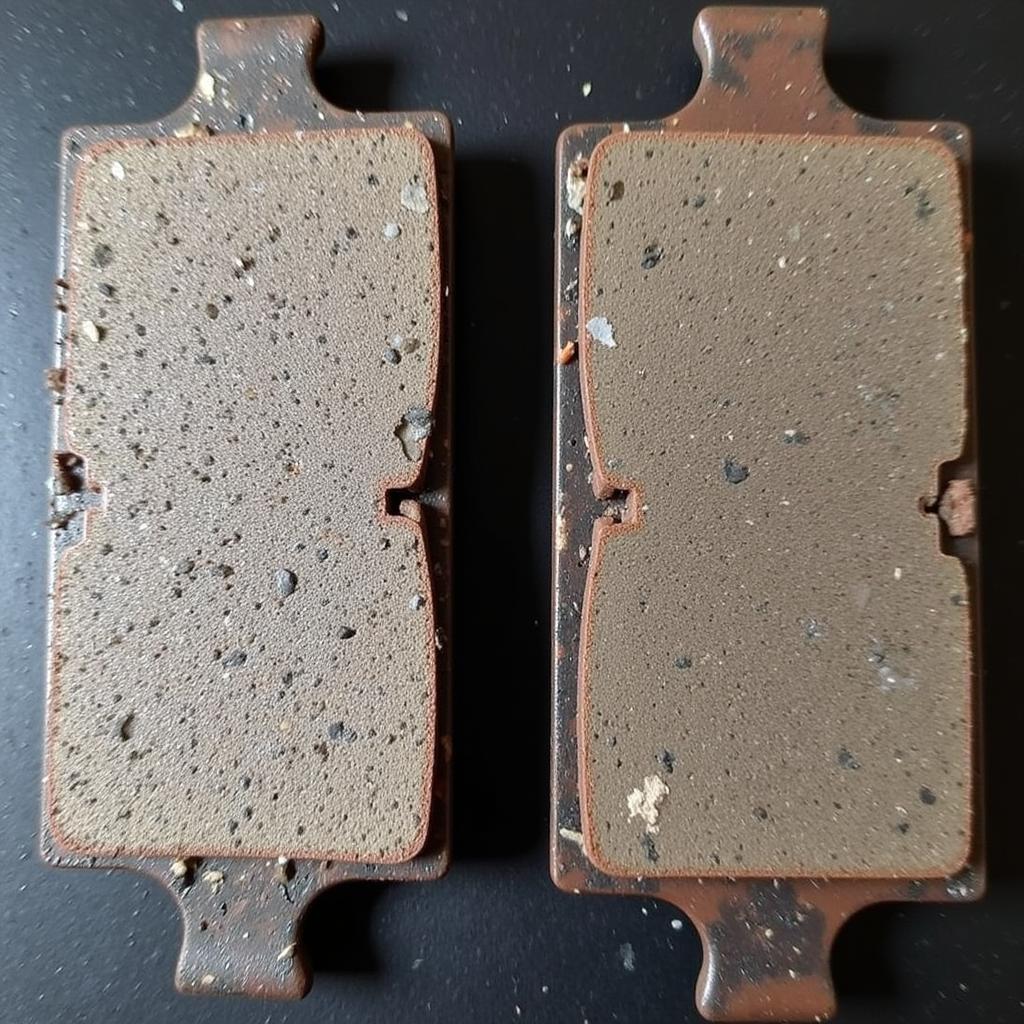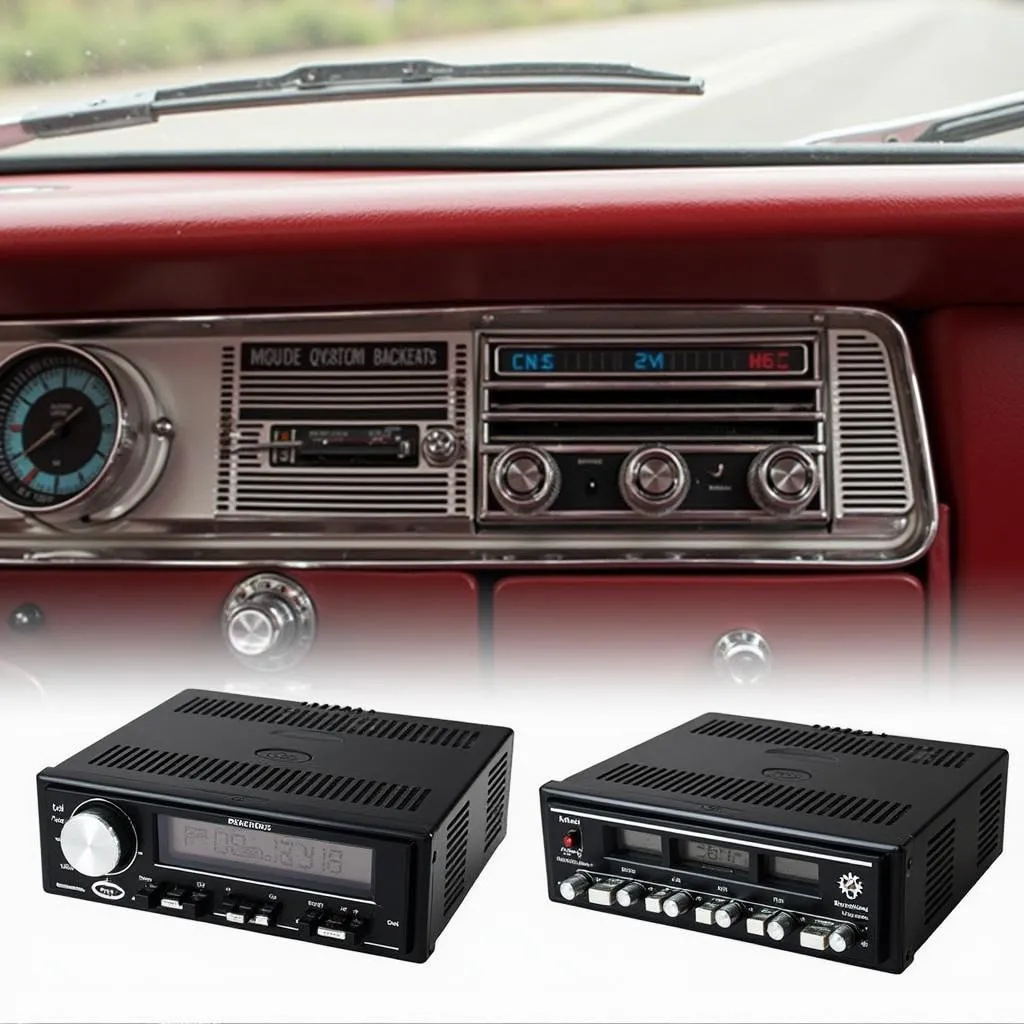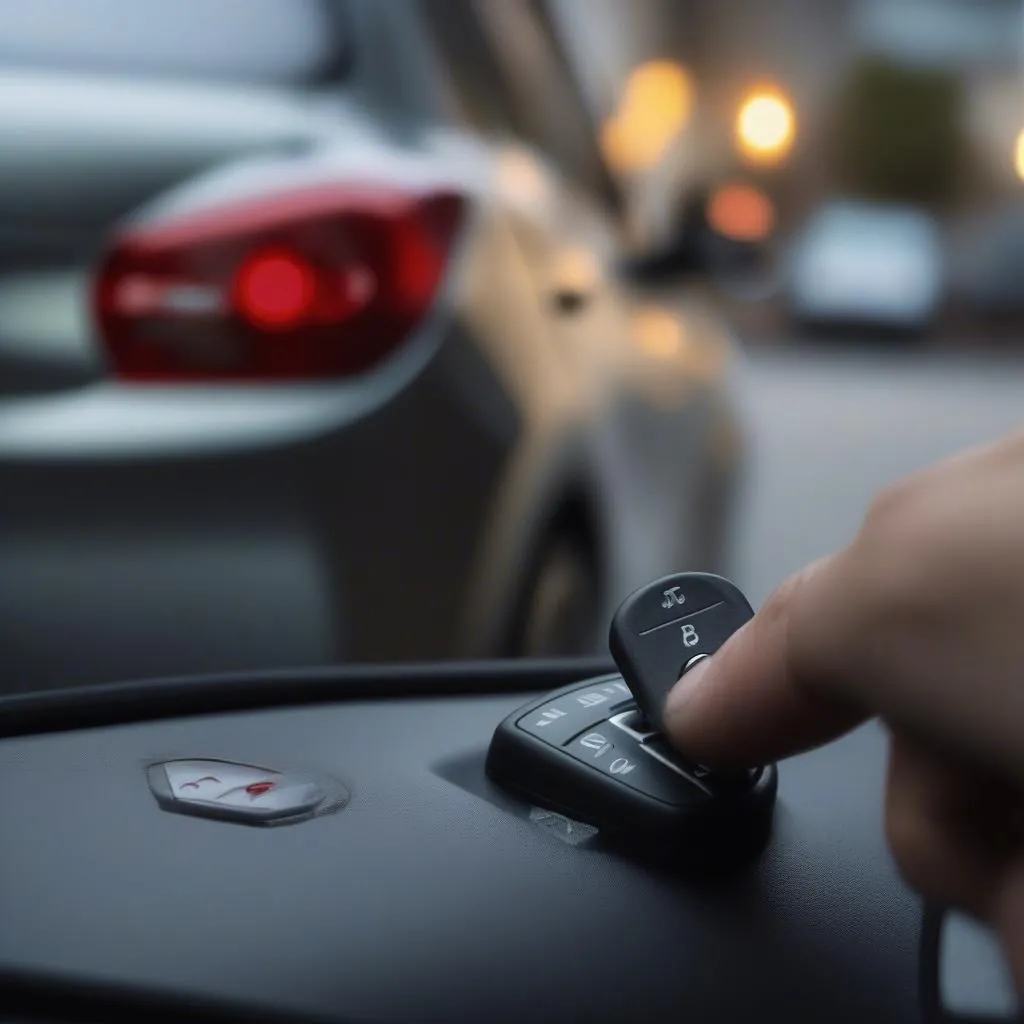A persistent brake warning light on your Dodge Ram dashboard can be a worrying sight. This light is your truck’s way of signaling a potential issue within your braking system that shouldn’t be ignored. While it can be something as simple as a low brake fluid level, it could also point to a more serious problem requiring immediate attention.
This article delves into the common causes behind a Dodge Ram brake warning light staying on and provides insights on how to troubleshoot and fix the issue.
Understanding Your Brake Warning Light
Your Dodge Ram, like most vehicles, utilizes a brake warning light system designed to alert you of potential problems within your braking system. Here’s what usually triggers the light:
- Low Brake Fluid: This is one of the most common culprits. Brake fluid is the lifeblood of your braking system, and a low level often indicates a leak or worn brake pads.
- Engaged Parking Brake: It might seem obvious, but sometimes the simplest explanation is the right one. If your parking brake is even slightly engaged, it can trigger the warning light.
- Faulty Brake Light Switch: This switch is responsible for activating your brake lights when you press the pedal. A malfunctioning switch can disrupt the brake light circuit, turning on the warning light.
- Worn Brake Pads: Brake pads have wear indicators that make a distinct squealing sound when they wear thin. If ignored, the warning light might illuminate, indicating the need for immediate replacement.
- ABS Issue: The Anti-lock Braking System (ABS) is crucial for preventing wheel lockup during hard braking. A problem with the ABS module or wheel speed sensors can trigger the brake warning light.
Troubleshooting the Brake Warning Light
 Dodge Ram Brake Fluid Reservoir
Dodge Ram Brake Fluid Reservoir
Before rushing to a mechanic, there are a few checks you can perform yourself:
- Check Brake Fluid Level: Open the hood and locate the brake fluid reservoir. The reservoir will have “Min” and “Max” markings. If the fluid level is below the “Min” mark, add the correct type of brake fluid (as specified in your owner’s manual) until it reaches the “Max” line.
- Inspect for Leaks: While checking the fluid level, examine the area around the master cylinder, brake lines, and near the wheels for any signs of brake fluid leaks. Leaking fluid will appear as a clear or yellowish oily substance.
- Release the Parking Brake: Ensure your parking brake is fully disengaged. Sometimes a slight bump or accidental nudge can partially engage the brake, triggering the light.
- Check Your Brake Lights: Have a friend or family member press the brake pedal while you stand behind the vehicle to ensure all brake lights are functioning correctly.
When to Seek Professional Help
If your brake warning light stays on even after performing these checks, it’s crucial to seek professional help immediately. Driving with a potential brake system problem is extremely risky.
A qualified mechanic with experience in Dodge Ram vehicles will have the diagnostic tools and expertise to:
- Read and Interpret Diagnostic Trouble Codes: Modern vehicles store diagnostic trouble codes (DTCs) that provide specific information about the issue.
- Inspect Brake Components: A thorough inspection of calipers, rotors, brake lines, hoses, and the master cylinder can reveal the root cause of the problem.
- Test the ABS System: Specialized equipment can be used to diagnose problems with the ABS module, wheel speed sensors, and related wiring.
- Perform Necessary Repairs: Once the issue is identified, a mechanic can carry out the necessary repairs, from replacing worn brake pads to fixing fluid leaks or addressing ABS faults.
Preventing Future Brake Warning Light Issues
 Worn vs. New Brake Pads
Worn vs. New Brake Pads
Proactive maintenance is key to preventing future brake issues:
- Regular Brake Inspections: Have your brakes inspected by a qualified mechanic at least once a year or as recommended in your Dodge Ram owner’s manual.
- Timely Brake Fluid Flush: Brake fluid absorbs moisture over time, which can reduce its effectiveness and potentially damage brake components. Follow the recommended brake fluid flush intervals outlined in your owner’s manual.
- Quality Brake Pads: Invest in high-quality brake pads that are compatible with your Dodge Ram model. Cheap or substandard pads wear out faster and can damage your rotors.
- Address Warning Signs Early: Don’t ignore unusual noises, vibrations, or changes in brake pedal feel. These can be early warning signs of brake problems that, if addressed promptly, can prevent more serious issues down the road.
Conclusion
A brake warning light that stays on in your Dodge Ram is a clear sign that something is amiss with your braking system. While a simple issue like low brake fluid or an engaged parking brake might be the cause, it’s essential not to ignore the warning. By understanding the potential causes, performing basic troubleshooting, and seeking professional help when needed, you can ensure your Dodge Ram remains safe and reliable for miles to come. Remember, when it comes to brakes, err on the side of caution and prioritize your safety.
FAQs
Q: Can I drive my Dodge Ram with the brake warning light on?
A: While you might be able to drive a short distance, it’s highly discouraged. Driving with a potential brake problem puts you and others at risk.
Q: How much does it cost to fix a Dodge Ram brake warning light issue?
A: The cost varies depending on the underlying cause. A simple brake fluid top-up might cost a few dollars, while replacing major components like the ABS module can cost significantly more.
Q: How often should I change my Dodge Ram’s brake pads?
A: Brake pad lifespan varies depending on driving style and conditions. However, it’s a good rule of thumb to have them checked every 12,000 miles and replaced as needed.
Q: Can I add any brake fluid to my Dodge Ram?
A: No, using the wrong type of brake fluid can damage your brake system. Refer to your owner’s manual for the recommended brake fluid type for your specific Dodge Ram model.
Q: How do I know if my Dodge Ram needs a brake fluid flush?
A: Consult your owner’s manual for the recommended brake fluid flush intervals. Generally, it’s a good idea to have the fluid flushed every 2-3 years or as recommended by your mechanic.


